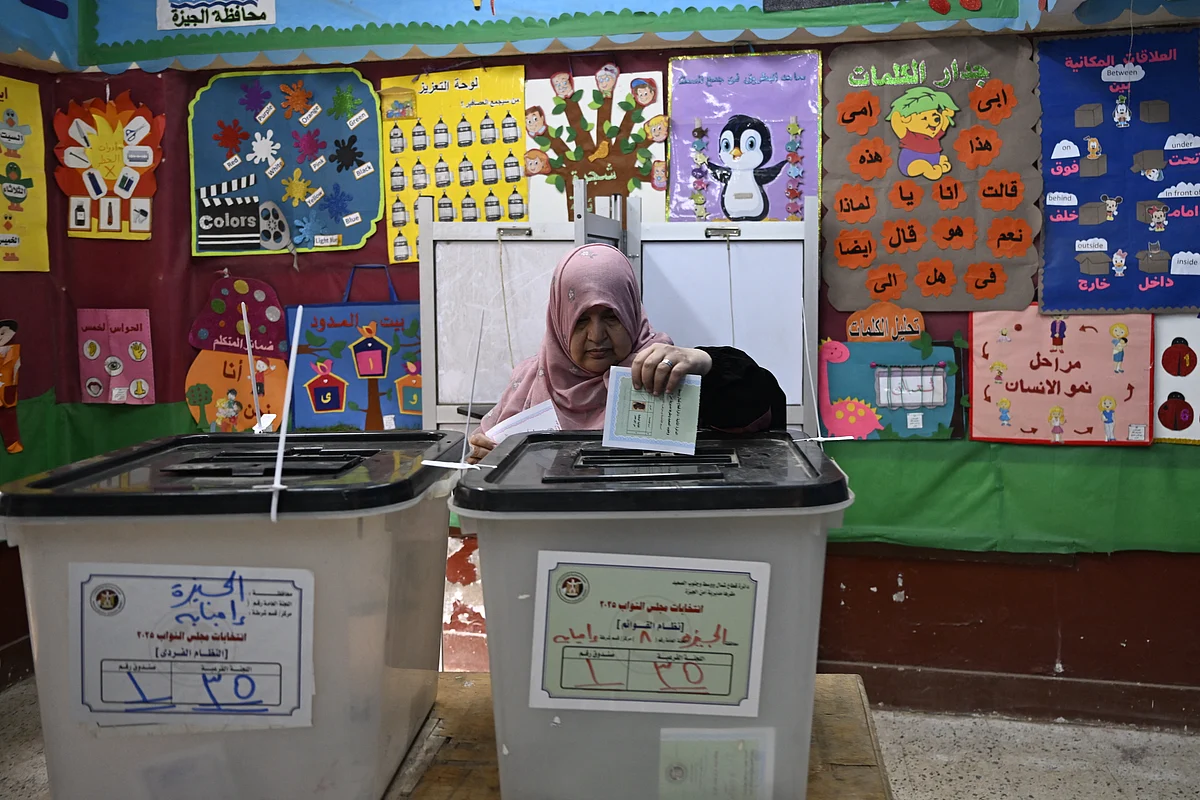
Egyptians Begin Voting In Parliamentary Elections Final Results Expected By Dec 25
Egyptians head to the polls on Monday to elect a new parliament.
The opening of polling stations at 9:00 am (0700 GMT) marks the start of a weeks-long process to fill 568 of the 596 seats in the lower house, with some provinces not voting for another two weeks.
Recommended For YouThe remaining 28 lawmakers will be appointed directly by President Abdel Fattah Al Sisi.
Egyptians abroad cast their ballots on Friday and Saturday. In regions such as Alexandria, voters have until Tuesday to cast their ballots in a first round. Some regions including Cairo will not vote until November 24.
Final results are expected by December 25.
Half of the seats will be filled through closed party lists and the other half by individual candidates, with a quarter of the seats reserved for women.
The parliamentary vote comes more than two months after elections for the senate, the upper chamber, which saw a low turnout of about 17 per cent.
The pro-government "National List for Egypt" coalition swept that vote, running unopposed in the party list race.
The coalition is expected to dominate again.
The pro-Sisi Mostaqbal Watan (Nation's Future) party and the National Front party - headed by former minister Essam Al Gazzar - lead the 12-member coalition.
Gazzar's newly formed party brings together former government officials and has the financial backing of business tycoon Ibrahim Al Organi, a close Sisi ally.
Opposition groups, meanwhile, remain divided. Some parties are running independently while others have joined pro-government lists.
Analysts said the timing of the elections gives them unusual weight as they will be the last before Sisi's third and final term ends in 2030.
"Sisi needs a parliament he can fully control," Timothy Kaldas of the Washington-based Tahrir Institute for Middle East Policy, told AFP.
"If he wants to stay in power beyond 2030, it's this next parliament that would have to initiate any constitutional changes to make that possible," he said.
Under the 2019 constitutional amendments, Sisi's term was extended from four to six years and his previous term was retroactively counted as his first, allowing him to stay in office until 2030.
Sisi's administration launched a national dialogue in 2022 in an apparent overture to the country's decimated opposition.

Legal Disclaimer:
MENAFN provides the
information “as is” without warranty of any kind. We do not accept
any responsibility or liability for the accuracy, content, images,
videos, licenses, completeness, legality, or reliability of the information
contained in this article. If you have any complaints or copyright
issues related to this article, kindly contact the provider above.

















Comments
No comment